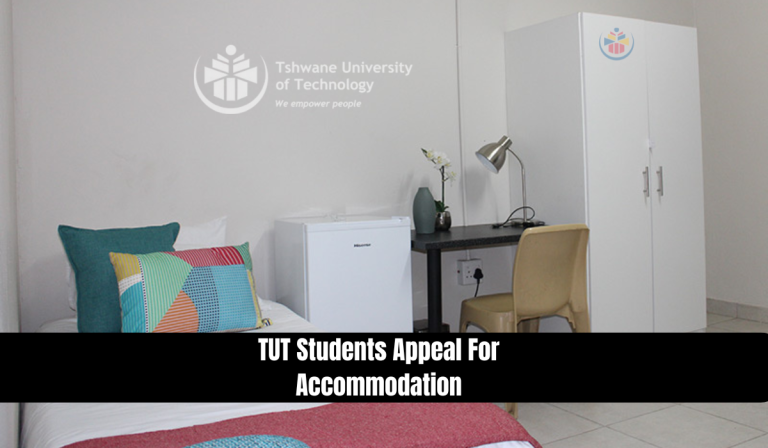Does TUT offer Scholarships?

Does TUT offer Scholarships? If you’re planning to study at the Tshwane University of Technology (TUT) in 2025 and need financial support, you’re in luck. TUT offers a variety of scholarships and bursaries to help undergraduate and postgraduate students fund their education. With extensions to application deadlines and expanded opportunities for research-based funding, now is a great time to explore the available financial aid options.
This comprehensive guide will walk you through everything you need to know about TUT scholarships, including types, eligibility, application procedures, and tips to maximize your chances of success.
Does TUT Offer Scholarships in 2025?
Yes, TUT offers scholarships. The university is committed to academic excellence and research innovation, and it backs this commitment with strong financial support for its students. TUT allocates significant resources annually for internally funded scholarships, bursaries, government aid, and access to private or external scholarships.
For those who missed earlier deadlines, the application closing date for TUT scholarships has been extended into 2025, offering more time to submit your application.
Types of TUT Scholarships and Financial Aid
TUT offers a wide variety of funding options to accommodate students from different academic levels and financial backgrounds. These include:
| Type of Funding | Description |
|---|---|
| Internally Funded Scholarships | TUT allocates over R11 million annually to fund scholarships for Master’s and Doctoral students. |
| NQF Level 7 Scholarships | Specific scholarships designed for students pursuing a degree at the NQF Level 7 qualification. |
| Postgraduate Diploma Scholarships | For those holding postgraduate diplomas who wish to further pursue a Master’s degree. |
| Bursaries | Need-based or merit-based awards that do not require repayment. |
| Government Funding (NSFAS) | Financial aid provided by the South African government for eligible students. |
| External Scholarships | Funding from private organizations, NGOs, and industry partners. |
| Student Loans | Loans available to students, typically requiring repayment with interest after graduation. |
Internally Funded TUT Scholarships
TUT is deeply involved in research aligned with industry demands. To support this, the university sets aside over R11 million annually for internal scholarships. These are primarily aimed at Master’s and Doctoral students, helping them focus on impactful research without the stress of financial burdens.
These scholarships are highly competitive and usually awarded based on academic excellence and relevance of the proposed research to South African industry and economic development.
NQF Level 7 and Postgraduate Diploma Scholarships
TUT has dedicated funding streams for students pursuing National Qualifications Framework (NQF) Level 7 programs. This level typically includes advanced diplomas and bachelor’s degrees. Additionally, those holding a postgraduate diploma and aiming to register for a Master’s program can also apply for tailored scholarships.
These scholarships serve as an academic bridge for career advancement and continued study at postgraduate levels.
TUT Bursaries
Beyond scholarships, TUT bursaries are another significant form of financial aid. These are primarily based on financial need, academic performance, or both. Bursaries can cover tuition fees, accommodation, books, and even living expenses.
TUT also facilitates the distribution of external bursaries from organizations such as the Department of Higher Education and Training (DHET), industry partners, and community organizations.
Government Funding: NSFAS at TUT
One of the most significant funding options for South African students is NSFAS (National Student Financial Aid Scheme). This government initiative provides comprehensive funding to qualifying students from poor and working-class families.
NSFAS at a Glance
- Eligibility: South African citizens with household income below R350,000 per year.
- Coverage: Tuition, accommodation, transport, books, and allowances.
- Application Process: Apply directly through the NSFAS online portal, but TUT also offers guidance through its financial aid office.
TUT supports students in navigating NSFAS applications and ensures alignment with course offerings and enrollment status.
External Bursaries and Scholarships
TUT students also benefit from a wide range of external funding opportunities. These scholarships are offered by private companies, non-profit organizations, and industry partners.
Some well-known providers include:
- Sasol Foundation
- Vodacom Bursaries
- Funza Lushaka (for education students)
- Telkom SA
- Municipal and provincial government departments
External bursaries often have their own criteria and timelines, so it’s crucial for students to track deadlines and eligibility requirements closely.
Student Loans at TUT
While TUT scholarships and bursaries are designed to be non-repayable, student loans offer an alternative for those who may not qualify for scholarships but still need financial assistance. These loans are available from banks and financial institutions and typically require repayment with interest after graduation.
Popular student loan providers in South Africa include:
- Standard Bank
- ABSA
- Nedbank
- Fundi
How to Apply for TUT Scholarships and Bursaries
Applying for TUT financial aid involves several steps. Here’s a simplified breakdown:
- Visit the TUT Official Website: Regularly check the TUT website and social media channels for updated scholarship notices.
- Identify the Right Scholarship: Review eligibility, field of study, and academic level.
- Prepare Required Documents: These may include academic transcripts, proof of income, motivation letters, and proof of registration.
- Apply Online: Most applications are submitted via the TUT Online Application Portal.
- Contact SCRI: The Senate Committee for Research and Innovation (SCRI) often manages postgraduate funding. It’s advisable to consult them for research scholarship queries.
- Track Your Application: Follow up with the Financial Aid Office or the relevant academic department.
Tips for Securing a TUT Scholarship in 2025
To maximize your chances of receiving funding at Tshwane University of Technology, follow these tips:
- Apply Early: Even though the deadline is extended, early applications get better attention.
- Focus on Academics: Maintain a strong academic record many scholarships are merit-based.
- Tailor Your Motivation Letter: Highlight how your goals align with TUT’s mission and the specific scholarship.
- Gather Strong References: Especially important for research or postgraduate scholarships.
- Stay Informed: Subscribe to updates on the TUT website and follow TUT’s official pages on social media.
FAQs About
Does TUT offer NSFAS?
Yes, TUT supports applications to NSFAS, which is government funding for eligible South African students.
Are TUT scholarships only for postgraduates?
No. While many internal scholarships target Master’s and Doctoral students, bursaries and external scholarships are available for undergraduate students too.
When is the deadline for TUT scholarships in 2025?
The closing date has been extended into 2025, but specific deadlines may vary by scholarship.
Conclusion
TUT scholarships in 2025 provide students with a real opportunity to achieve their educational goals without being hindered by financial constraints. From generous internal research funding and NQF Level 7 scholarships to NSFAS and external bursaries, there’s a wide array of options to explore.







